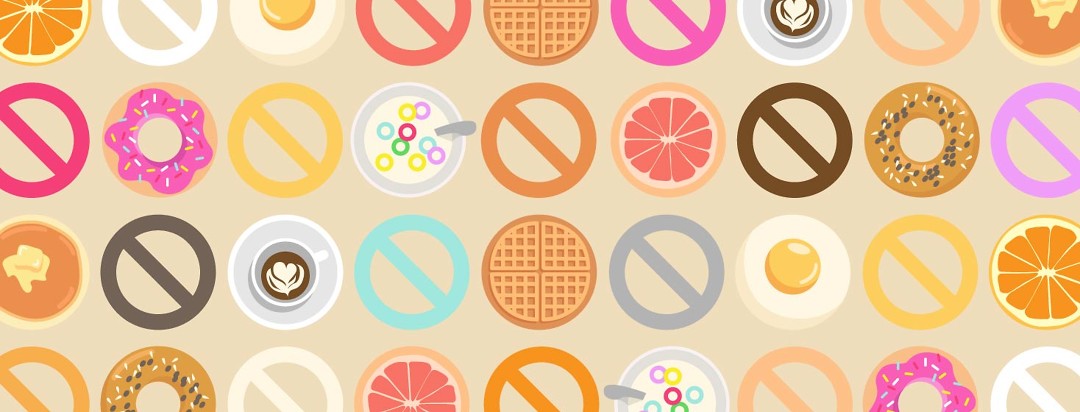I Stopped Eating Breakfast, What to Watch for in Your Littles
I’ve been trying for years to put the pieces together to figure out when inflammatory bowel disease symptoms began to present. Like the point in time, I stopped eating breakfast.
I can’t remember when exactly the change started. Was it summer time or during the school year? I’m unsure.
What I do remember is that it was gradual; a day here, a couple of days there. We were living in our second house and I remember the school I was attending at the time. So, I know that I was somewhere between seven and eight years old.
If I didn’t eat it, I wouldn’t get sick
It wasn’t a loss of interest in breakfast so much as it was self-preservation.
I remember one particularly bad morning. My dad put an Australian version of an English Muffin into the toaster oven for my breakfast. It's commercial came on the kitchen TV and the slogan had begun to irk me, “It makes your mouth wat-tuh.” I yelled back, “No, it makes your butt water!” One more reason to believe I was about, eight.
Like clockwork, I was sick in the bathroom not long after eating breakfast. I was mad at the food, as only a child can be. I remember being pragmatic that breakfast was not good for me. Therefore, I wouldn’t eat breakfast again if I had somewhere I needed to be.
My new normal wasn’t picked up
But like many resolutions we make throughout our lives, I didn’t always stick to the no-breakfast rule. One day, at summer camp, has always stood out in my memory. Mom dropped me off at camp, and almost immediately after she left I was sick to my stomach.
I went to the front office to have someone call her to come back. The owner of the camp’s wife was in the front office. I’ll never forget the look on her face. She asked why I needed a call to go home. I assume she thought I was homesick.
“I’ve been in the bathroom since just after mom dropped me off. I don’t feel well.”
She asked if I was not feeling well before we left the house. I told her no, this happens almost every day but today is worse.
“Almost every day?” She asked with a horrified look. Her face startled me. The back of her hand was suddenly on my forehead. A mom thing.
“Yes,” I murmured.
This was becoming my new normal. But an adult who didn’t know me well didn’t see it as normal.
Adults saw the signs of IBD, but they didn’t see it either
I texted my mom the other night and asked her if she remembers when I stopped eating breakfast. She replied, “High school?”
“No, I just stopped eating by then, “I replied, rather snottily.
By high school, I was sporadically eating lunch and dinner with the family. I had developed an aversion to food in general. There were occasional exceptions like burgers and fries, pasta, and chicken tenders. These sound like the absolute worst things for someone with digestive issues, but they became safe foods for when I did eat. I wasn’t "not hungry" either — I was fearful.
Signs of other digestive issues were present from early on, as well. I experienced frequent “stomach viruses” and infections. Whenever something was diagnosed as viral, I was almost always placed on antibiotics as well because of a high white count. When I became anemic, it was brushed off as "woman problems."
What to do if you find yourself in this situation
After receiving the official Crohn's diagnosis, I performed a postmortem as I would after a project concluded at work. These were my conclusions:
- Someone should have talked to me. Not my parents. I was an object in the room.
- Scare tactics like, “it could be cancer,” is not talking. It’s scaring and scarring.
- Colonoscopy and thorough review and explanation of labs should have taken place. Neither did.
- Open explanation and education of why a colonoscopy is so critical for helping to diagnose digestive issues. Most likely, I would have consented.
I know there is no guarantee that colonoscopy at 15 would have yielded a diagnosis. However, the upper endoscopy showed severe gastritis. I came across my records when applying for disability in 2012. Labs were ignored in teen and adult years, which could have helped build a portrait of health; or in my case, a lack thereof.
So, if you notice a change in your child’s bathroom habits and dietary habits, have a conversation. If someone had explained why they needed to know if there was blood in the toilet, I probably would have been honest. I lived in unnecessary fear for so long. Hopefully, this story and these tips can help someone in the next generation of IBD.

Join the conversation